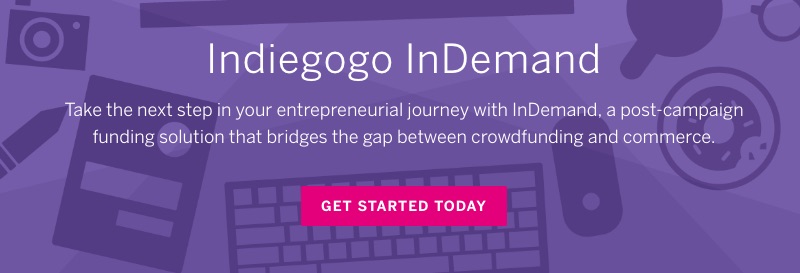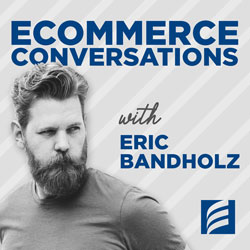
Direct-to-consumer companies increasingly rely on crowdfunding for initial capital. Indiegogo, a crowdfunding portal, now offers “InDemand” to assist startups in moving from initial raises to functioning businesses.
Watch out traditional retailers. Digitally native direct-to-consumer brands are stealing your thunder, and more of them are popping up. DTC companies manufacture and ship their products directly to customers, retaining control over the making, marketing, and distribution of products. Eliminating distribution partners allows these companies to reduce costs and in many cases pass the savings on to their customers.
What often makes them stand out is their creativity — devising unconventional designs for staid products (Caspar mattresses) or using alternative materials (Allbirds wool sneakers). Away embraced technology for its carry-on luggage, and Warby Parker changed the eyeglass frame business model, selling frames online by sending five frames to potential customers to try for free and then return for free. Casper successfully took on mattress retailers by simplifying choices and offering free returns on their easily shippable mattresses.
Traditional retailer Mattress Firm filed for bankruptcy late in 2018 as a result of Casper and other online DTC mattress brands. Dollar Shave Club and Harry’s upended the razor industry. And Glossier is challenging traditional cosmetics brands with highly personalized products based on suggestions from customers.
Crowdfunding
In the past few years, venture capital firms often shifted startup investments from ecommerce companies to software platforms. However in 2017 VCs invested $3.8 billion in online DTC startups, and in 2018 they invested about $5 billion, an increase of 32 percent, according to data from PitchBook, a research firm.
During the time that venture capital was scarce, consumer product startups turned to crowdfunding to raise money, mostly on Kickstarter and Indiegogo, two rewards-based portals. The products themselves were the most common reward. Successful raises — meaning the product was manufactured and delivered — meant that startups had to transition to a sales model, selling on a company website or via Facebook or Instagram.
In 2015 Indiegogo launched InDemand, which allows successful crowdfunding campaigns (those that raise the amount requested) to continue on the portal and accept pre-orders of the product. Indiegogo also partners with design firms and distribution experts so startups have access to expertise that can help them transition from campaign to a business. This assistance can help businesses avoid the manufacturing and shipping snafus that doomed many successful crowdfunding campaigns.
Additionally, startups that crowdfund receive valuable advice from donors regarding how the product could be improved. This feedback is key to the success of DTC companies.
The success of consumer product crowdfunding showed venture capitalists that a healthy market exists for unique consumer products. They eventually came around to funding DTC businesses that were meeting needs that traditional retailers ignored.
Success Factors
Now multiple DTC companies have reached unicorn status (a valuation of at least $1 billion). Among them are:
- Allbirds, valued at $1.4 billion,
- Away, valued at $1.4 billion,
- Casper, valued at $1.1 billion,
- Glossier, valued at $1.2 billion,
- Harry’s, acquired by Edgewell Personal Care (owner of Schick) for $1.4 billion,
- Dollar Shave Club, acquired by Unilever for $1 billion.
Conference organizer CommerceNext states in its report, “How Leading Retailers and Direct-to-Consumer Brands Are Investing in Digital,” that customer data platforms that assist in personalization are essential to the success of DTC companies. Seventy percent of DTC companies interviewed indicated that their 2019 budgets have increased for customer data platforms, compared to 63 percent for traditional retailers.
Moreover, according to the CommerceNext report, “While 60 percent of ecommerce marketers surveyed have increased spending in 2019 on personalization, DTC brands are allocating more of their budget towards this technology. Heading into the 2019 holiday retail season, 67 percent of digital-first DTC brands surveyed have increased personalization budgets, compared to 58 percent of incumbent brands.”
Amazon
Another sign of the popularity of DTC brands is that Amazon is wooing many of them, inviting them to Seattle headquarters for dinners, tours, and gifts. According to a January 2019 article on Digiday, Amazon has offered brands financial investments ranging from $500,000 to $1 million in exchange for selling on its Marketplace. Brands have also been promised free advertising on Amazon and free inventory management through Fulfillment by Amazon.
While some DTC brands are already selling on the Amazon Marketplace, others are wary. Amazon is famous for copying successful products into Amazon private brands and then competing against those products with lower prices. Another objection is that Amazon refuses to share customer data, something crucial to the character of DTC companies.






